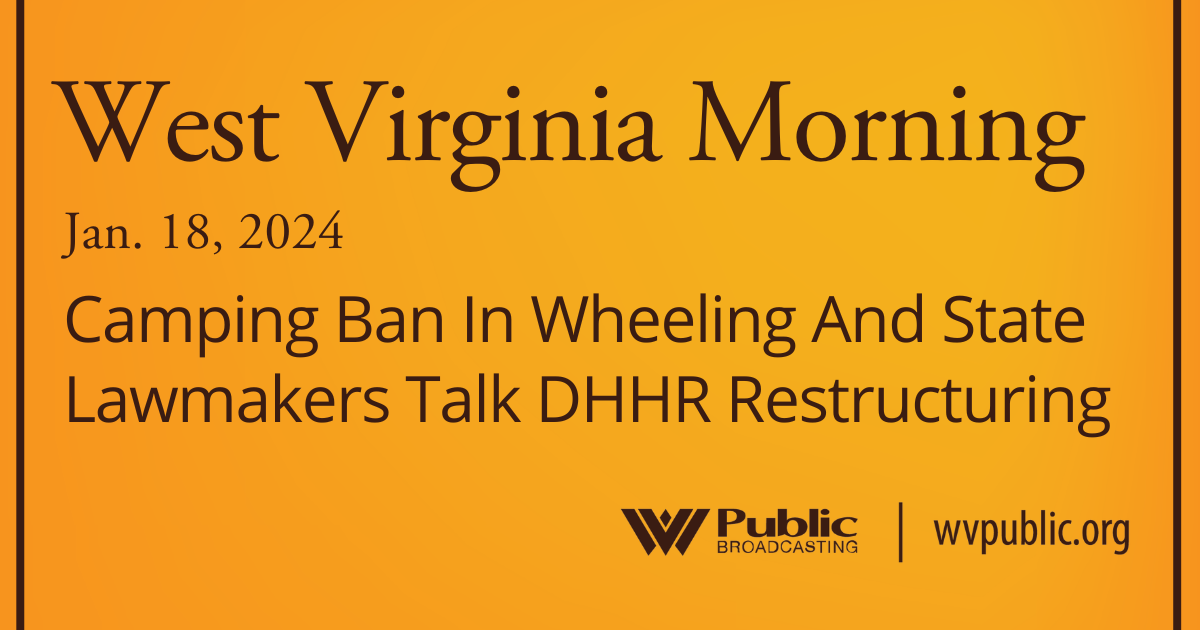“There are lots of reasons organizations have come up with to not shelter individuals and a lot of those conditions exist specifically in the veteran population,” he said. “So we try to reach through that.”
The struggle to help homeless and near homeless veterans often includes helping their families, too.
On Monday the Select Committee on Veterans Affairs heard from Helping Heroes, Inc., a Wheeling based center that assists veterans facing or currently experiencing homelessness, achieve housing stability.
Last year, the organization helped 56 veterans in the five counties of the Northern Panhandle. When factoring in their families, more than 300 individuals and families were affected.
Iraq veteran and cofounder Jeremy Harrison told committee members efforts to help homeless vets extends to their spouses and children.
“That’s one of the things people don’t really think about often when thinking about these veterans you’re trying to provide services for,” he said. “There are many children involved in these families; families living in vehicles or wherever they can, it often involves children.”
Helping Heroes helps veterans facing eviction with rent through the state’s Emergency Solutions Grant (ESG) program.
Helping Heroes Chief Executive Officer R. J. Konkoleski said the organization also helps veterans access an emergency shelter where needed. During their stay at the shelter, veterans receive help to find a more permanent housing solution.
“Our shelter is a little different,” Konkoleski said. “As I mentioned, we meet veterans where they are. There are shelters in the area that you can’t stay in if you don’t have a driver’s license. If you’re living in a tent, or under a bridge, there’s a good chance you don’t remember where your driver’s license is, or you don’t have it.”
Konkoleski said a lot of local shelters refuse to accept veterans if they don’t pass a breathalyzer test.
“There are lots of reasons organizations have come up with to not shelter individuals and a lot of those conditions exist specifically in the veteran population,” he said. “So we try to reach through that.”
The organization offers ten transitional housing beds where veterans can stay at no cost for up to 24 months. Case managers assist the veterans with benefits and employment, and ultimately move out into the community and into their own housing.
Konkoleski told lawmakers the program boasts a 72 percent success rate in helping vets find gainful employment and things like benefits which Konkoleski credits to the individual partnership between the vets and their case managers.
Many vets return from service and struggle with financial, marital, employment, mental health, and substance abuse issues.
“When we meet the veterans we serve, the first thing we see isn’t even a veteran,” he said. “It’s a human being because that’s who’s there first and that’s the first step in getting assistance from them.”
Konkoleski said the problem of homelessness is more complex than what it appears at face value. He called it a symptom of underlying societal problems.
“It’s a symptom of unemployment, it’s a symptom of mental health, it’s a symptom of addiction,” he said. “You can’t look at homelessness as the problem. You cannot eradicate homelessness, you have to meet people where they are, find out the causes and try to mitigate the causes.”
According to Helping Heroes, eleven percent of the homeless adult population are veterans. Konkoleski said prevention and early intervention are key.
“If you’ve been following the news in Wheeling, everyone is searching for a solution to the homelessness problem,” Konkoleski said. “I’m sure that it’s not unique to Wheeling, it’s probably all over the state of West Virginia. It’s probably all over the nation.”
Konkoleski said increasing engagement with at-risk veterans and providing the care they need as human beings will prevent the homeless crisis currently seen among the state’s veteran population.
“Wouldn’t it be great if we could meet these veterans before they are living in a tent, or before they’re staying under a bridge, and have interventions earlier to avoid them becoming homeless,” Konkoleski said. “That is how you would solve the homelessness problem.”
